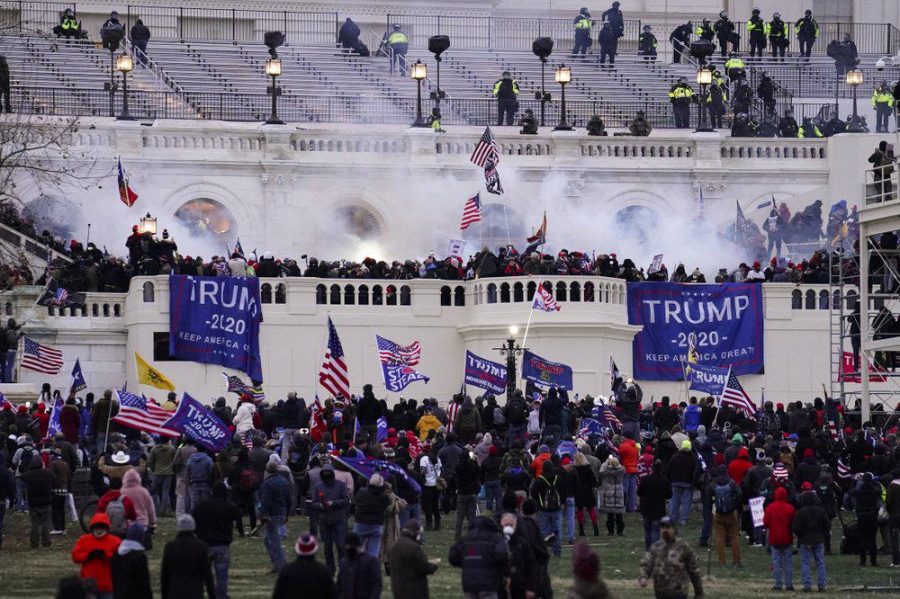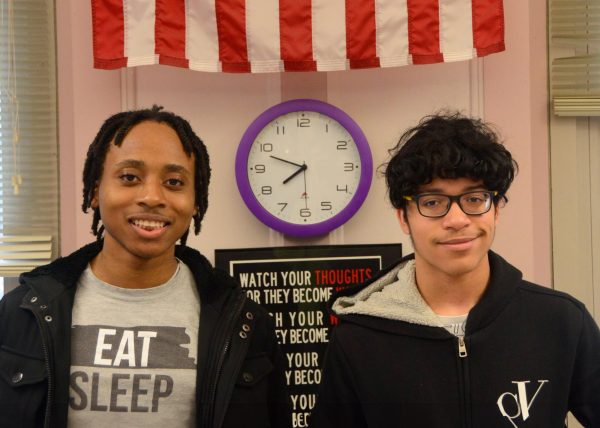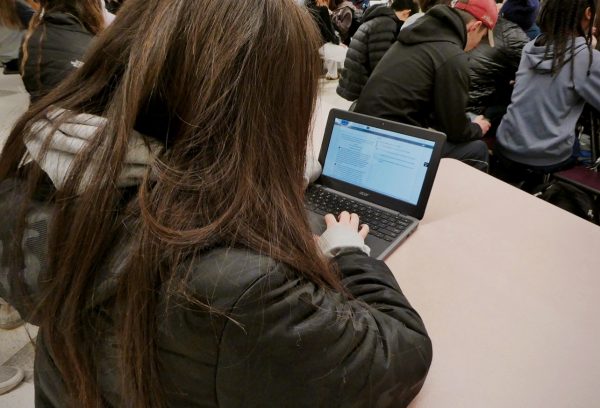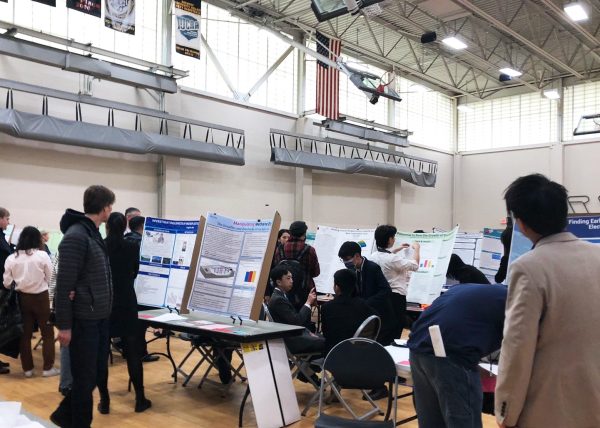Facing History Group Chat Tackles Capitol Attack
In response to the attacks on the United States Capitol on January 6, Ms. Judi Freeman, teacher of Boston Latin School’s Facing History and Ourselves course, started a group chat to engage students in discussions about the insurrection.
That day, Congress met to count and confirm electoral votes for the 2020 U.S. presidential election. Before they finished, however, a violent mob of rioters loyal to former President Donald Trump stormed the U.S. Capitol in an attempt to overturn the election results and prevent President Joe Biden from succeeding Trump.
Following this were motions for a second impeachment of Trump, which included drafting an article of impeachment that accused him of incitement of insurrection. Soon after, there were arrests of numerous protesters, as well as the resignation of the Capitol police chief.
President Biden was inaugurated just two weeks after the insurrection. Instead of thousands of supporters being present to cheer on the new President, however, there were thousands of national guard troops stationed for his protection, highlighting the threat of violence within our country’s democracy,
These attacks triggered many heated discussions around the country by various political organizations and media, as well as by faculty and students here at BLS. Like others, Topol Fellow Rick Li (I) was surprised by the violence of the event.
“Initially, it was shocking because [when] you think of America, you think of a strong nation,” Li reflects. “Yes, we have our divides [and] many levels of beliefs, whether it’s economic, political, social — there’s the virus — but we’ve never gone too far with it. And I think the attack on the Capitol was definitely loads too far.”
On top of shock, the event struck a personal chord with Ms. Freeman because she used to work at the National Gallery of Art, which is located less than a mile away from the Capitol. She adds she could never have imagined the way that it was rampaged, and compared the event to a scene from a Marvel movie.
While reactions, articles and opinions from around the world swirled about the Internet, Ms. Freeman felt that communication and discussion would help students to process this event.
“In some ways, it was like an earthquake. You think the ground is solid, and then all of a sudden it starts shaking. One of the most helpful things to do in moments of trauma is to talk through what you’re experiencing with other people experiencing it,” Ms. Freeman says.
On that account, she created a group chat on WhatsApp, which was easy for her students to access, as they were already using the app for communication in another project. After Ms. Freeman shared the invite, 67 students joined in just 45 minutes.
During the attacks, students followed various news channels from CNN to PBS to C-SPAN to Fox, where different pieces of information and perspectives were reported. This collaboration enabled the students to share resources and updates regarding the aftermath of the incident.
Ourania Parastatidis (II), a Facing History student, recalls the high level of participation in the group, stating, “different thoughts, articles, posts, tweets, photos were coming to you at a rapid-fire pace at times.”
In addition to Facing History students, the Topol Fellows and many BLS alumni joined the group chat. Ms. Freeman even invited a colleague based in the Czech Republic to share his perspectives, along with what the Czech media was reporting. In this environment, everyone was able to learn from each other, educate themselves on what had happened and ultimately broaden their views on the situation.
Parastatidis found that hearing from Ms. Freeman’s Czech colleague was insightful, saying, “The Czech news […] denounced the riots, as many other leaders from different countries did. It was also safe to say there was a common consensus by the majority participating [that] the Capitol riots were an act of domestic terrorism.”
Echoing Li’s point, Parastatidis believes that the group chat was not only helpful for educational purposes, but was also valuable as a safe space that allowed everyone to share their viewpoints, especially if one could not do so within their home environment.
As more students continued to join the platform, Ms. Freeman carefully moderated the group chat, ensuring that everyone was properly identified, or otherwise removed.
Outside of the group chat, many other BLS teachers set aside time in their classes to discuss the attacks, simply due to their significant impact on our country.
Looking back on this event, Ms. Freeman found that the most educational part of Facing History is its “seize-the-moment” structure.
“We have this sort of ‘carpe diem’ philosophy about the class. I will rarely say to the class, ‘Oh, well, you know, it may be January 7, but we have to move on talking about eugenics and forget that this real event happened.’ We’ll stop class [to talk about the situation].”
It is encouraged for those interested in current events, history and political discussion to “Czech” out Facing History.







Cooper Wilson • Feb 1, 2021 at 8:14 am
Great job Ross!!!! The article was amazing!!!!!!